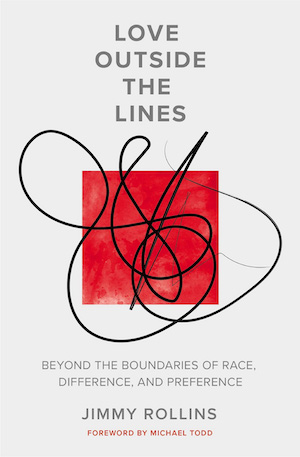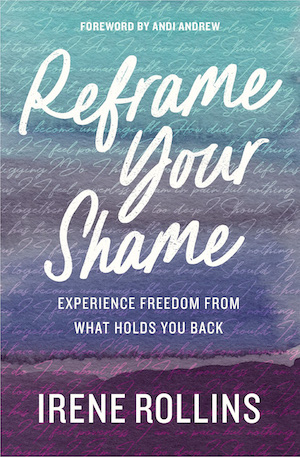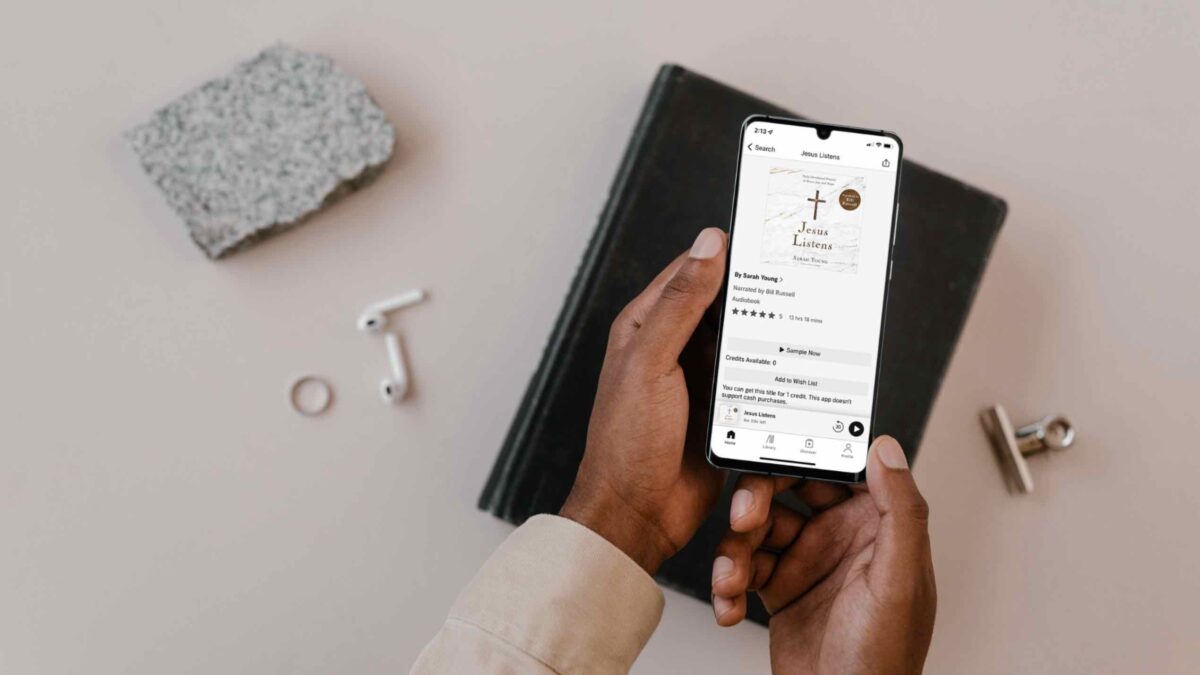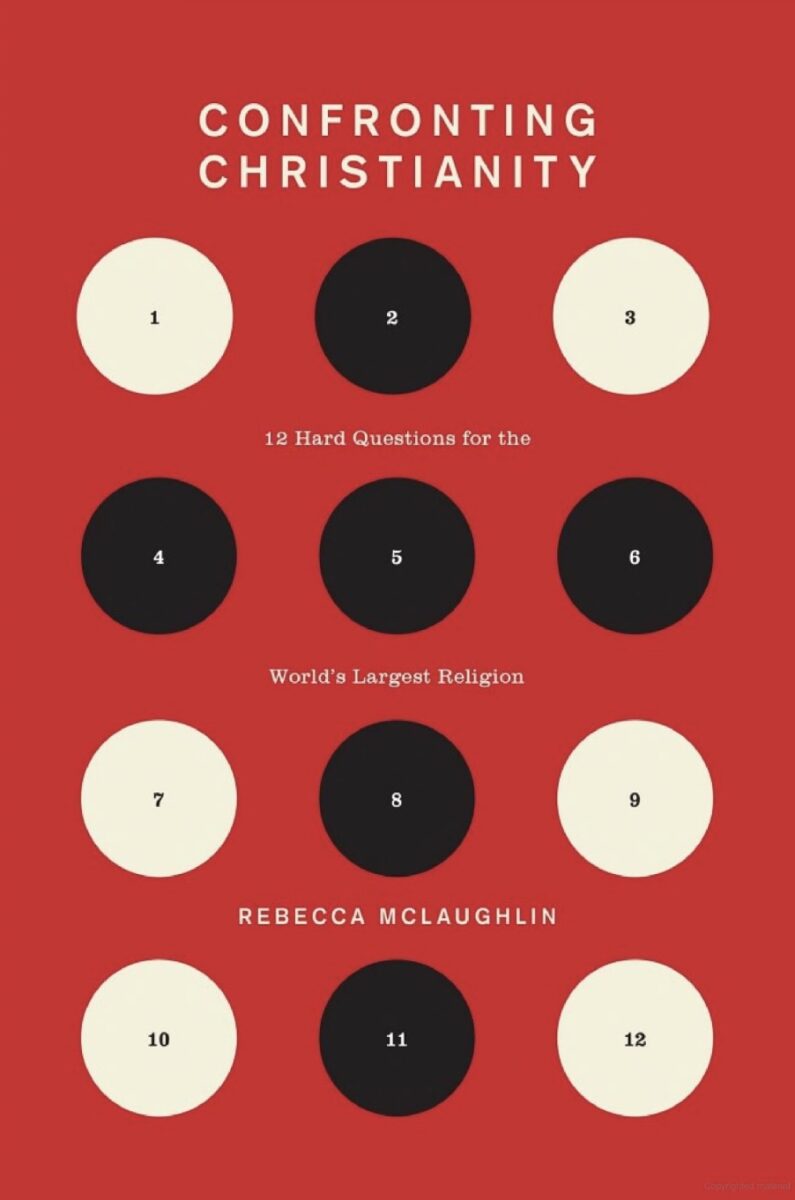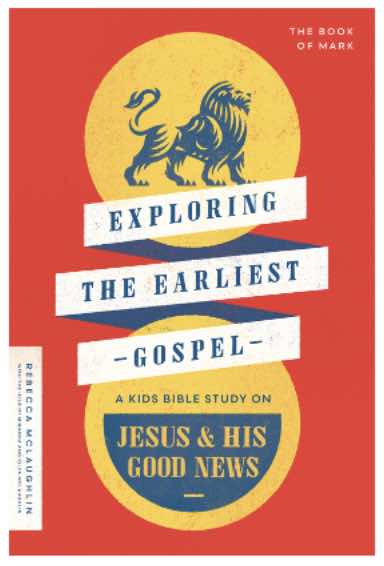Our Pain Is Not Meant to Be Carried Alone: Jimmy and Irene Rollins & Rebecca McLaughlin
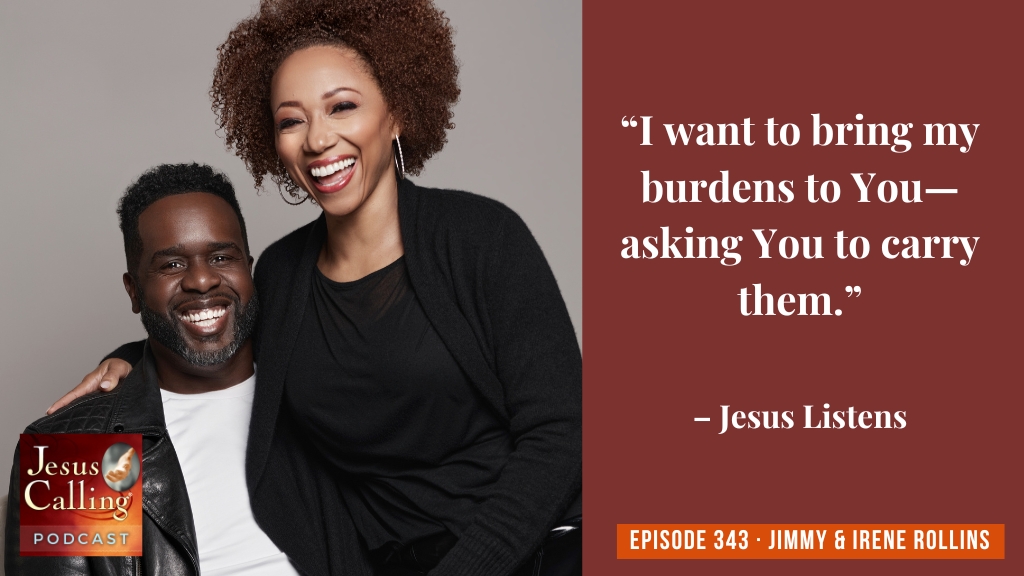
Jimmy Rollins: We realized in counseling that our differences didn’t have to divide us. Our differences can actually make us better and complete our marriage as one whole marriage. And we started to learn that the goal of our marriage is not to think alike—it was to think together.
Our Pain Is Not Meant to Be Carried Alone: Jimmy and Irene Rollins & Rebecca McLaughlin – Episode #343
Narrator: Welcome to the Jesus Calling Podcast. When we think about our problems, it can sometimes look like things are only happening to us. Our struggles may appear one-sided and that God has left us to deal with it on our own. But when we draw near to God, He plants people in our lives to show us that our pain is not meant to be carried alone. And when He does that, we have a comforting reminder of a God who will never leave us nor forsake us.
Pastors Jimmy and Irene Rollins have a passion to reach all people for God, no matter their background, ethnicity, or life circumstances. As they dreamed of building a diverse congregation, the stress of being leaders of a growing church began to negatively impact them both, and Irene took to coping with alcohol. They share how together, they faced her addiction and the problems that made it come to a head. Author of Confronting Christianity Rebecca McLaughlin shares why it’s important to encourage young people to dig into the Word of God. She believes that reading the Bible with her children and helping them work through their questions helps them make sense of their faith, and also teaches them a way to live that is steeped in compassion for others.
Let’s start with Jimmy and Irene Rollins’ story.
Irene Rollins: My name is Irene Rollins. I’m a pastor, an author, and also a recovery activist. I lead a ministry for marriages called Two Equals One with my husband.
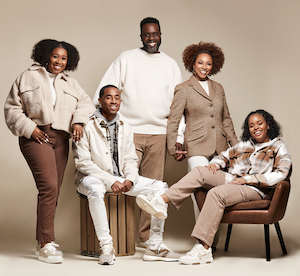
Jimmy: My name is Jimmy Rollins. I pastored as a senior pastor, and we led a church [that started in] 2011. I’m also an author and a speaker who travels to spread the good news of the gospel.
I grew up in my parent’s church and got a taste of every area of ministry. I ended up being the student pastor for about ten years and then transitioned to the executive pastor role at my parent’s church.
And then in 2011, my wife and I relaunched it to i5 CITY. It was predominantly an African-American church, and our goal was diversity. We felt God calling us to birthing and starting a diverse church. And so we began to change a predominantly African-American church to just loving and accepting all. In the congregation, we had and had all sorts of ages, all sorts of ethnic backgrounds.We embraced men and women in ministry. And we felt like God put on our hearts that if we were going to reach a diverse city, we were going to have to have a diverse church. I’ve begun to notice the ostracized, the outcast, the overlooked, and I want to have the heart of God and to love people like Jesus loves people.
“We felt like God put on our hearts that if we were going to reach a diverse city, we were going to have to have a diverse church.” – Jimmy Rollins
Hiding Behind Shame
Irene: As a pastor and a mother and a wife, I was serving God, loving God, loving His people, and running a church with my husband. And everything we did was about making sure we fulfilled the mission of the Great Commission. And as we were doing that and leading our church, about three years in, I introduced alcohol back into my life after [not drinking] for maybe ten or plus years. And upon doing so, I quickly unknowingly slid into the grips of addiction.
It kind of crept up on me. I didn’t even see it coming because I didn’t know anything about addiction. And I didn’t realize that the trauma I hadn’t dealt with, my unhealthy coping mechanisms for stress and pain, and our dysfunctional marriage—at the time we had no idea that our dysfunction was dysfunction. It was just our normal. And as the pain and the stress and pressure of ministry began to pile up, I began to use alcohol as a coping mechanism.
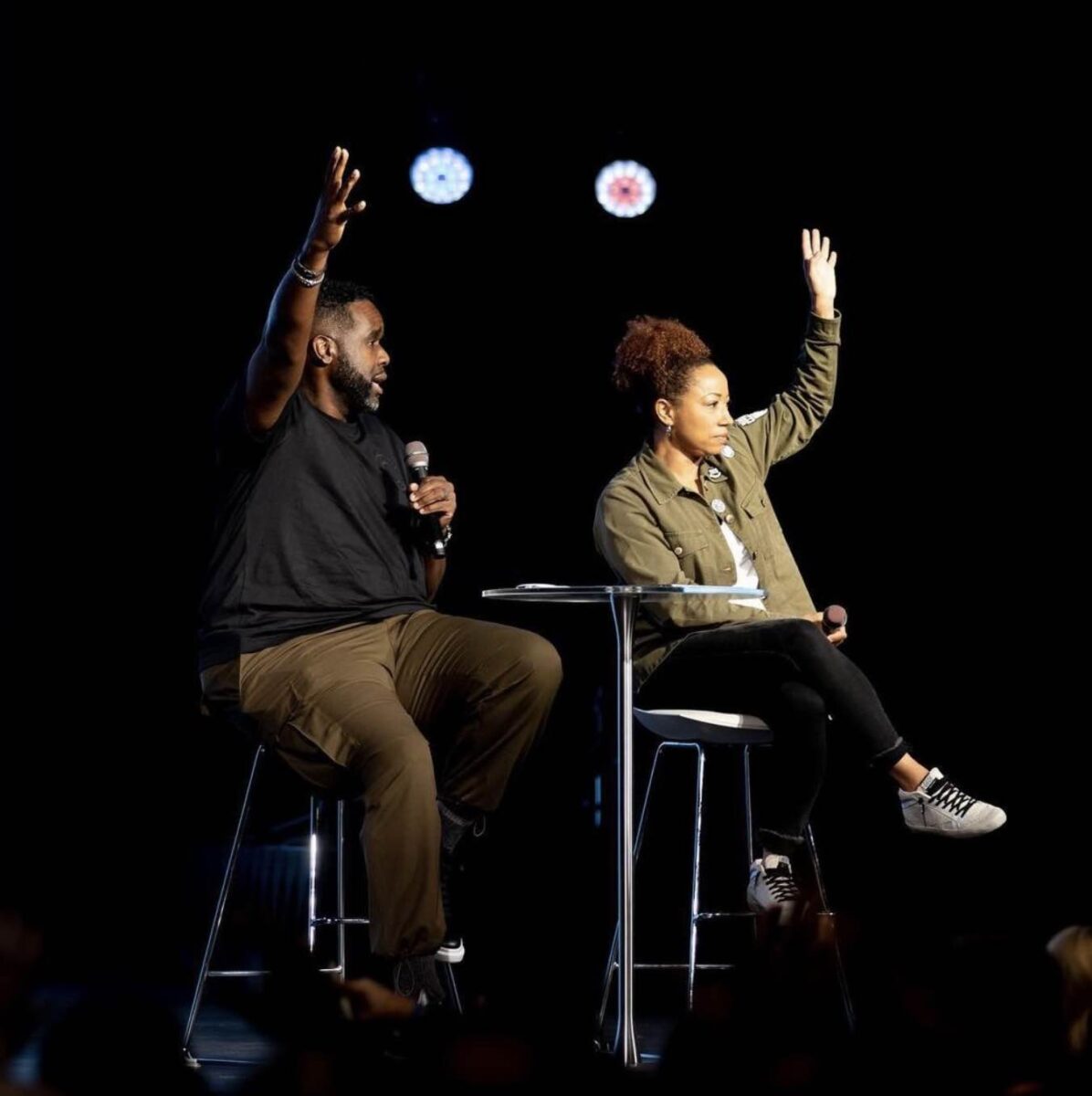
When I began to address it with my husband, we would argue a lot. We experienced a lot of pain because I began to hide alcohol. And as our marriage began to get more dysfunctional, I began to hide in the shame of the fact that I was drinking to blackout.
Jimmy gave me an ultimatum: to get help and go to rehab, or he was going to leave the marriage. And when I finally faced the fact that I had a problem, I ended up in rehab. And that rock bottom was the most painful, shame-filled experience. I thought I wasn’t going to make it out.
Jimmy: At the time, I think I was actually driving her further into the addiction with my judgment, with my unbridled way of trying to get her to stop drinking, with my own anger issues, my own vices.
Irene: When I ended up in rehab, I thought that I couldn’t face the fact that someone would one day find out that I was a pastor and a wife and ended up in rehab. But once I got to rehab, I realized that there were doctors, lawyers, and stay-at-home moms—addiction was not a respecter of persons.
Jimmy: We got accountability that helped us get to the space of needing to get healthy and to get help. And then as we began to get healthy, we stopped doing the dance of shaming one another and judging one another, and we started to embrace the fact that we both needed grace. As we begin to do that, we begin to heal, and we begin to get the tools necessary to care for one another’s journey in the healing process.
“As we began to get healthy, we stopped doing the dance of shaming one another and judging one another, and we started to embrace the fact that we both needed grace.” – Jimmy Rollins
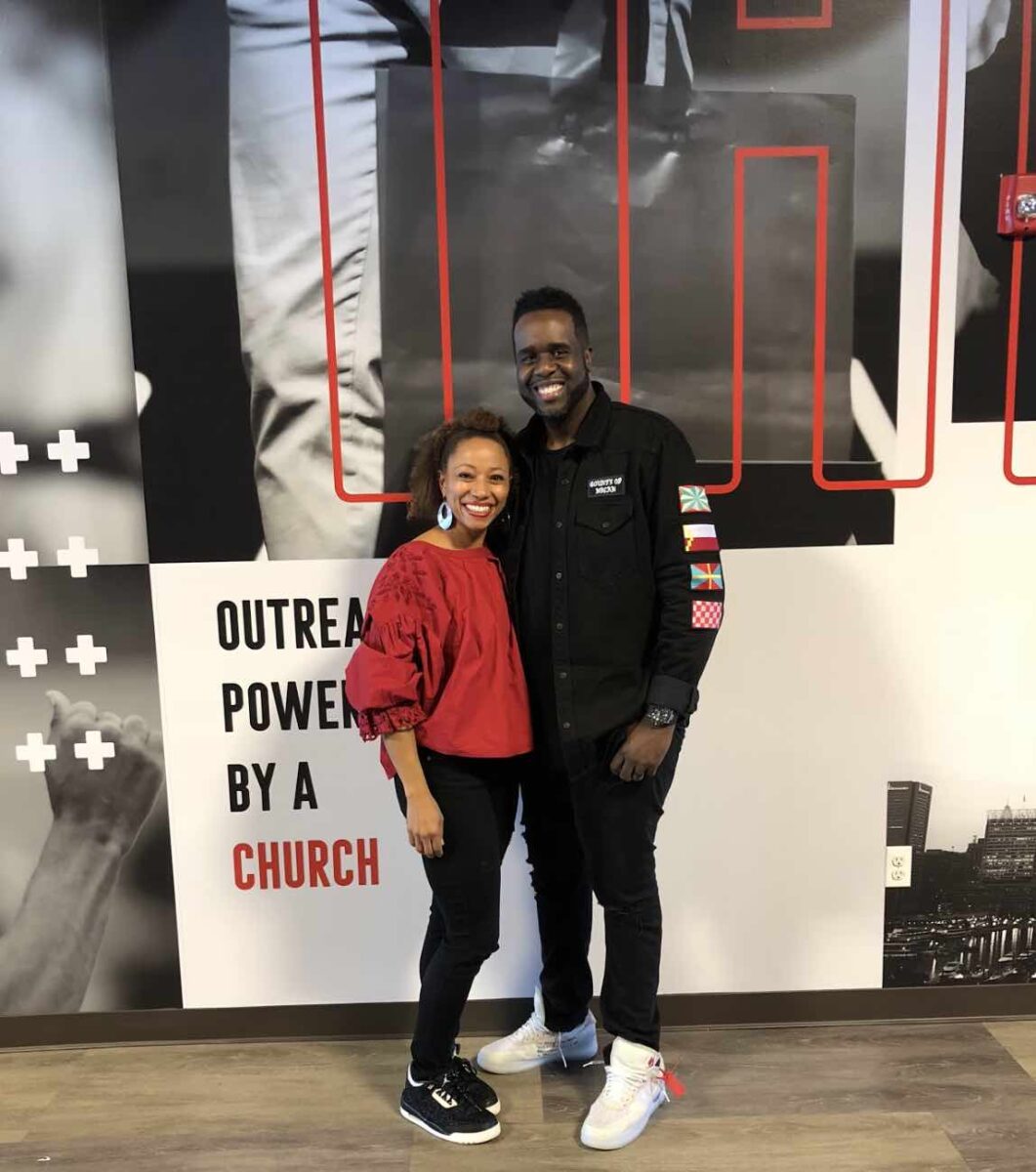
Irene: We worked together in terms of admitting our weaknesses. It was realizing that we were not our broken places of trauma. We weren’t our past family of origin, our dysfunction, or things we brought into the marriage. We began to work on those things. We began to look at addiction as not something that I was doing to Jimmy, but rather something I was doing to medicate pain. And as we began to develop new ways of communication, new ways of embracing pain and grief, we began to approach healing together.
“We began to look at addiction as not something that I was doing to Jimmy, but rather something I was doing to really medicate pain. . . . We began to approach healing together.” – Irene Rollins
I began to realize that the more I admitted my weaknesses to God and to my husband and to others in group settings such as A.A. or Celebrate Recovery or small groups in my church, I began to realize the power of reframing shame as I spoke it.
In the beginning of my recovery, connecting with God on a moment-by-moment basis was a lifeline for me. And as a leader, as a mother, as a child of God, it is still my lifeline. It was a non-negotiable and still is in my recovery journey. I connect with the Lord first thing in the morning, learning to really bring Him into my every day, every moment. It’s required me having some disciplines, like devotions first thing in the morning.
My Jesus Calling devotion was and still is a huge part of my life. But those first three years in my recovery journey, it really helped me to slow down long enough to stop and breathe, to think and reflect, and to surrender my will to the Lord’s will. It helped me walk out what it really means to be intimate with my Father and all of the blockages I had in my relationship with God prior to my recovery journey. And when I began to get more aware of His presence in my moments with Him, the awareness of His presence, my weaknesses, my humanity, my need for Him, all of that came through my time of meditation and devotions.
“In the beginning of my recovery, connecting with God on a moment-by-moment basis was a lifeline for me. And as a leader, as a mother, as a child of God, it is still my lifeline.” – Irene Rollins
I’m seven years sober to date. So now when I say that I’m a recovering alcoholic, I’m actually grateful about it, and I’m overcoming shame every time I admit my weakness of addiction to alcohol. I am not looking at alcoholism as I am bad. I’m looking at it as I can never drink again, it’s a weakness, because I have altered my brain chemistry. And out of that God can—Romans 8:28—use it for good to help set others free. And that’s exactly what He’s done. I’ll spend the rest of my life boasting about what the Lord has done in me, in my family, in my marriage.
Pain Is a Unifier
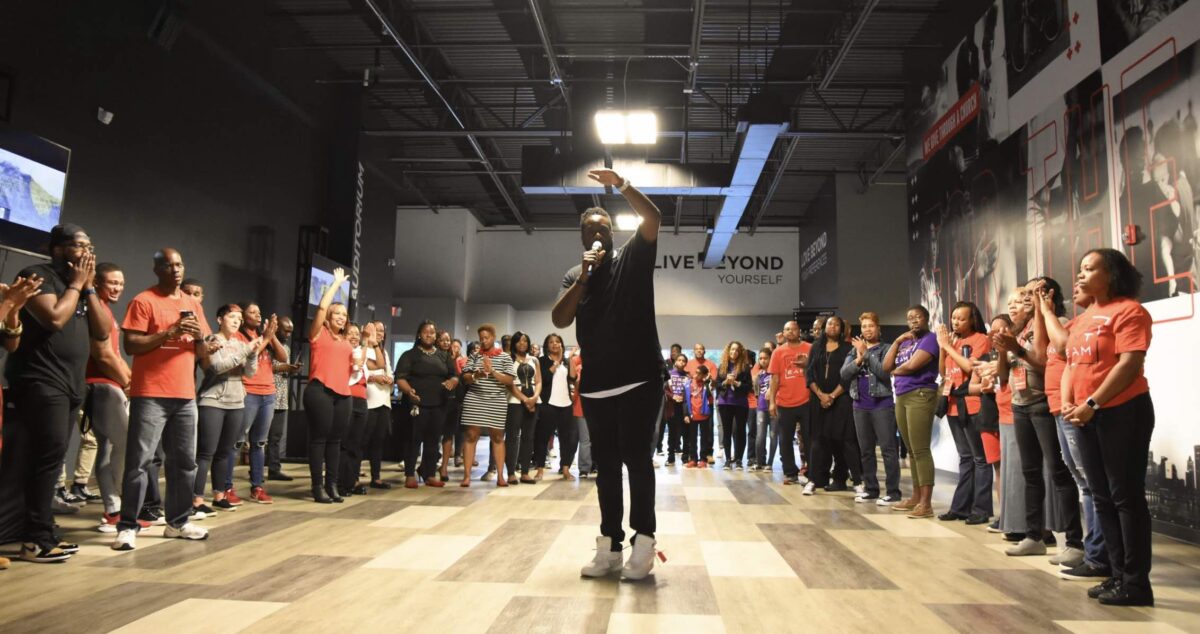
Irene: When we begin to share our story of recovery and what we’ve overcome, people are shocked at times. We get vulnerable and transparent about our story, and how the Lord came in and rescued us, how He was with us in the pain of the injuries and the traumas and the dysfunction, but He was also with us in our healing. And for us, when we share that, it gives people permission to share and pursue healing for themselves. It gives them hope. It awakens the desire to get well and get free and then share it with the world.
And so as a person struggling with PTSD [Post-Traumatic Stress Disorder] and struggling with addiction, what I am passionate about is making a statement by sharing my story of recovery, and removing the shame, and giving people permission to say, “I need help.”
Jimmy: What we’ve discovered is that pain is a unifier. Divorce has no color. Alcoholism has no socioeconomic temperature. Grief is colorblind. And what we’ve discovered is that as we begin to stay transparent with our story, as we begin to steward the path of where we are to this greater purpose, pain has been the unifier. And the receptivity of the message of diversity and unity, the reconciliation that needs to happen racially in our country and in our world, you know, what we’ve discovered is we’ve never changed a mind. We’ve never changed a heart. Only the Holy Spirit can do that. We like to say, “You don’t have to have a shared experience to share empathy.”
“Pain is a unifier. Divorce has no color. Alcoholism has no socioeconomic temperature. Grief is colorblind. . . . You don’t have to have a shared experience to share empathy.” – Jimmy Rollins
Irene: Because diversity is in not just race, not just gender and socioeconomic status, it is broken people. Really, all of our brokenness is different. It’s diverse. And so as we come together in God’s church and share our stories and empathize with one another and feel each other’s pain—as we experience it together and allow God to come in and bring healing, I really believe that we experience the power of unity.
One thing I like to share [is that] connecting with God is more than prayer: it’s seeing Him in our everyday, in those we meet, in nature, connecting with Him, and things like that. It took me getting into recovery to slow down long enough to appreciate those things. I have this rule of life now that I’m going to be before I do. I’m going to be with God before I do anything for God. I’m going to give out of my healed self, out of my time with Him. I can’t give away what I don’t have. If my goal is to give away the love of Christ, I’ve got to sit and really receive His love myself. And it requires slowing down and being with Him in order to do that.
Narrator: Irene speaks a prayer from Jesus Listens, March 24th to wrap up their time with us.
Irene:
Mighty God,
Though I walk in the midst of trouble, You will revive me. So I won’t let problems intimidate me. Instead, I’ll remember that You, the Mighty One, are in my midst, and You are greater than all the trouble in the world! The Bible assures me that Your right hand will save me. If I cling tightly to Your hand, I can walk confidently through my toughest times.
I’m grateful that You enable me not only to endure my hardships but to grow stronger through them. Even so, because I’m on an arduous journey, there are times when I feel weary and faint. Help me not to interpret this as a sign that You’re displeased with me but to accept my weakness as part of living in a broken world. Please keep reminding me that I’m not alone in my struggles. You are with me, and my brothers throughout the world are experiencing the same kind of sufferings. As I go along this challenging path, I need to stay in communication with You. Your living Presence revives me—strengthening me and blessing me with Peace.
Narrator: To learn more about Jimmy and Irene Rollins, visit www.twoequalsone.com. And be sure to check out their latest books, Love Outside the Lines and Reframe Your Shame, at your favorite retailer.
Stay tuned to Rebecca McLaughlin’s story after a brief message.
Listen to inspirational prayers with the Jesus Listen audiobook
Jesus Listens is the prayer devotional book from Sarah Young helping people everywhere deepen their relationship to God through prayer. Now you can hear these daily prayers with the Jesus Listens audiobook!
The Jesus Listens audiobook contains daily, short, heartfelt prayers and is the perfect way to connect with God on a daily basis that fits your busy schedule. You can listen from anywhere –during a morning commute, an afternoon walk, or as part of your regular meditation and reflection time.
Check out the Jesus Listens audiobook on Audible, Apple Books, or wherever you listen to audiobooks.
Narrator: Our next guest is Rebecca McLaughlin, author of Confronting Christianity: 12 Hard Questions for the World’s Largest Religion and 10 Questions Every Teen Should Ask (and Answer) about Christianity. Rebecca shares how she built the roadmap to answer some pretty challenging questions about race, diversity, and other topics young Christians often grapple with. She opens up about how talking to our children early on prepares them to seek Jesus more.
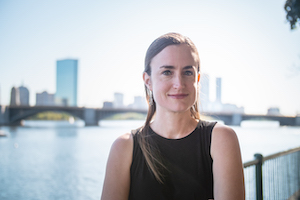
Rebecca McLaughlin: My name is Rebecca McLaughlin. I come from the U.K. I was born and raised in England, lived most of my childhood and adolescence and teenage years in London.
As far back as I can remember, I’ve always been a follower of Jesus, but probably from the time I was about nine, I have distinct memories of knowing that Jesus was the only person I could truly rely on. And from that stage in my Christian life as well, I was surrounded by friends who were very intelligent, often very well-meaning people who didn’t believe in Jesus at all. So from an early age, as a Christian, I was wanting to explain to my friends why I found Jesus so compelling and why some of the reasons they had for not even considering Christianity—whether they were intellectual reasons or ethical reasons—didn’t actually stand up when you looked at them more closely.
Connecting with Christian Professors
I went to Cambridge University and did my undergrad, master’s, and PhD in English literature, and then I went to seminary for three years in order to study the Bible more and to be trained to have conversations about Jesus better. It seemed like Jesus provided the most satisfying way of looking at the world, the most satisfying way of understanding my relationships, my intellectual life, my personal life. And I just never looked back from that point.
“It seemed like Jesus provided the most satisfying way of looking at the world, the most satisfying way of understanding my relationships, my intellectual life, my personal life. And I just never looked back from that point.” – Rebecca McLaughlin
When I was coming out of seminary in the U.K. and had just married a guy from Oklahoma, he really wanted to move back to the U.S. We were talking together about what I would do in America, and honestly, it was hard for me, the thought of leaving a relatively gospel-poor country like the U.K. to move to a relatively gospel-rich country like the United States.
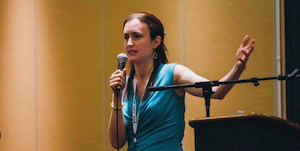
I spent nine years working with a ministry called the Veritas Forum, and much of my role there was connecting with Christian professors leading secular universities—places like Harvard University, Yale University and University of Oxford and Cambridge—who were also serious followers of Jesus, and helping them to think about how they could speak about their faith in relation to their work in the university context. And I had the opportunity to hear why they found Jesus so compelling. Some of them had been raised in Christian families and had continued in their faith. Others had actually become Christians later on in their lives.
And after nine years of doing that, meeting with these professors, hearing their stories of faith, how they reflected on their research as Christians, I felt like I had a little bit of a road map of where many of the conversations are when it comes to everything from science and faith, to faith and philosophy, to psychology to history. And I wanted to make those conversations, those insights, those stories available to a larger audience.
I truly love to write, so I feel incredibly thankful that the writing I do that’s profoundly helpful to me turns out to often be helpful to other people as well.
A Roadblock That Becomes a Signpost
I wrote Confronting Christianity almost as a love letter to my non-Christian friends. So I wrote it primarily to people who are now pretty adult and pretty educated and might have some really substantial objections to Christianity for a range of reasons. After that, I was reflecting on the fact that younger Christians and younger people who may have dismissed Christianity for whatever reason are actually facing almost all the same kinds of challenges.
My kids currently are twelve, ten, and four. And even a few years ago, when I was writing Ten Questions Every Teen Should Ask, they were encountering all the same kinds of challenges to faith that university students and folks beyond that were encountering as well. And so I wrote the junior version of Confronting Christianity to help kids, whether they are teens or not even quite yet teens so that every seeming roadblock to faith in Jesus, when you look more closely, becomes a signpost.
“Every seeming roadblock to faith in Jesus, when you look more closely, becomes a signpost.” – Rebecca McLaughlin
You know, there are a lot of people who think Christianity is kind of against diversity, against love across racial differences, against equality, and against justice. But actually, if you look at the scriptures and if you look at history at large, you’ll find that Christianity is the basis for those things. [It’s] much of what our young people in particular are craving and longing for. [Then] world around us tells them, “Well, you have to leave Christianity to find true justice, true diversity, true flourishing, true love.” Actually, you have to dig into Christianity to find those things.
I think a lot of Christian parents have the concern or the sense that a big piece of their job is kind of protecting their children from difficult ideas, whether it’s questions around suffering that might be disturbing to their kids. And I think there are a lot of Christian parents who think, Well, I don’t really want to talk to my children until I have to. You know, maybe it’s when they’re fourteen or fifteen. If we take that approach, all we are doing is letting other people have those conversations while we’re not. And if I want to read the Bible with my children, which I do, I actually need to be willing to talk to them about some really hard things really early on.
So I’m not hoping to push off those conversations to the very last minute. I’m trying to have these conversations early and often because they’re one of the ways I’m pointing my kids to Jesus.
An In-Depth Look at the Gospels
The more I read the Bible for myself, the more I become amazed and intrigued by what it’s saying, and the more I realize how little I know. The more I dig into any topic of relevance to faith, the more convinced of Jesus I become. Now that’s been true when I’ve looked at science, and it’s been true when I’ve looked at Scripture.
“The more I dig into any topic of relevance to faith, the more convinced of Jesus I become.” – Rebecca McLaughlin
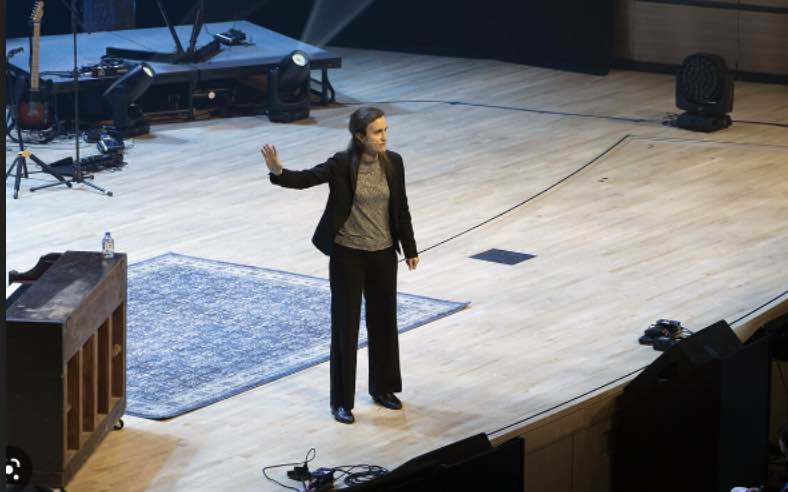
I spent some time last year writing. And as part of that, I was looking at how we relate to the full gospel accounts of Jesus’ life—Matthew, Mark, Luke, and John—as historical documents. What does it mean to say that they are giving us access to eyewitness testimony about Jesus? And the more I dug into that, the more fascinated and compelled I became—actually, the more I realized the gospel has had massive amounts of eyewitness testimony to draw from. And they had to boil it down to really, really short books that can be read in the same time it takes to watch a film.
And doing that more in-depth work, that kind of digging around in the Gospels, really just made me more excited about Jesus. Even as I sit down to read through one of the Gospels, I’m always amazed by all the things that I’ve missed.
And in daily Bible reading and prayer, that just helps me once more to lift my eyes to Jesus and to get a glimpse of what He’s doing in this world.
Narrator: Rebecca closes our episode with a prayer from Jesus Listens, May 26th.
King Jesus,
The Light of the gospel of Your Glory is an astonishingly rich treasure! What makes the gospel such amazingly good news is that it opens the way for me to know You in Your majestic Glory. When I trusted You as my Savior, You set my feet on a pathway to heaven. Forgiveness of sins and a future in heaven are wondrous gifts, but You provided even more! You made Your Light shine in my heart to give me the Light of the knowledge of the Glory of Your Face. Help me to seek Your Face wholeheartedly— delighting in the radiant knowledge of Your glorious Presence.
In Your wonderful Name,
Amen
Narrator: To learn more about Rebecca, visit www.rebeccamclaughlin.org. And find her new book, Exploring the Earliest Gospel: A Kids Bible Study on Jesus and His Good News, wherever books are sold.
If you’d like to hear more stories about celebrating our individuality, check out our interview with Deb Liu.
Next week: Luke Weaver

Narrator: Next time on the Jesus Calling Podcast, we’ll hear from pitcher Luke Weaver, who dreams of living his faith out loud from the mound, and how he’s striving to keep a “What would Jesus do?” mindset when approaching any obstacle.
Luke Weaver: We’re vulnerable, we’re seeking counsel, we’re seeking some type of comfort in some type of way. And the easiest answer for me has just always been the Word and prayer and pushing to make that a priority. Because I’ve had my moments where I’ve tried to do it myself, and it’s just the most brutal plan. It’s sloppy, and it’s just not built on any type of firm foundation.
